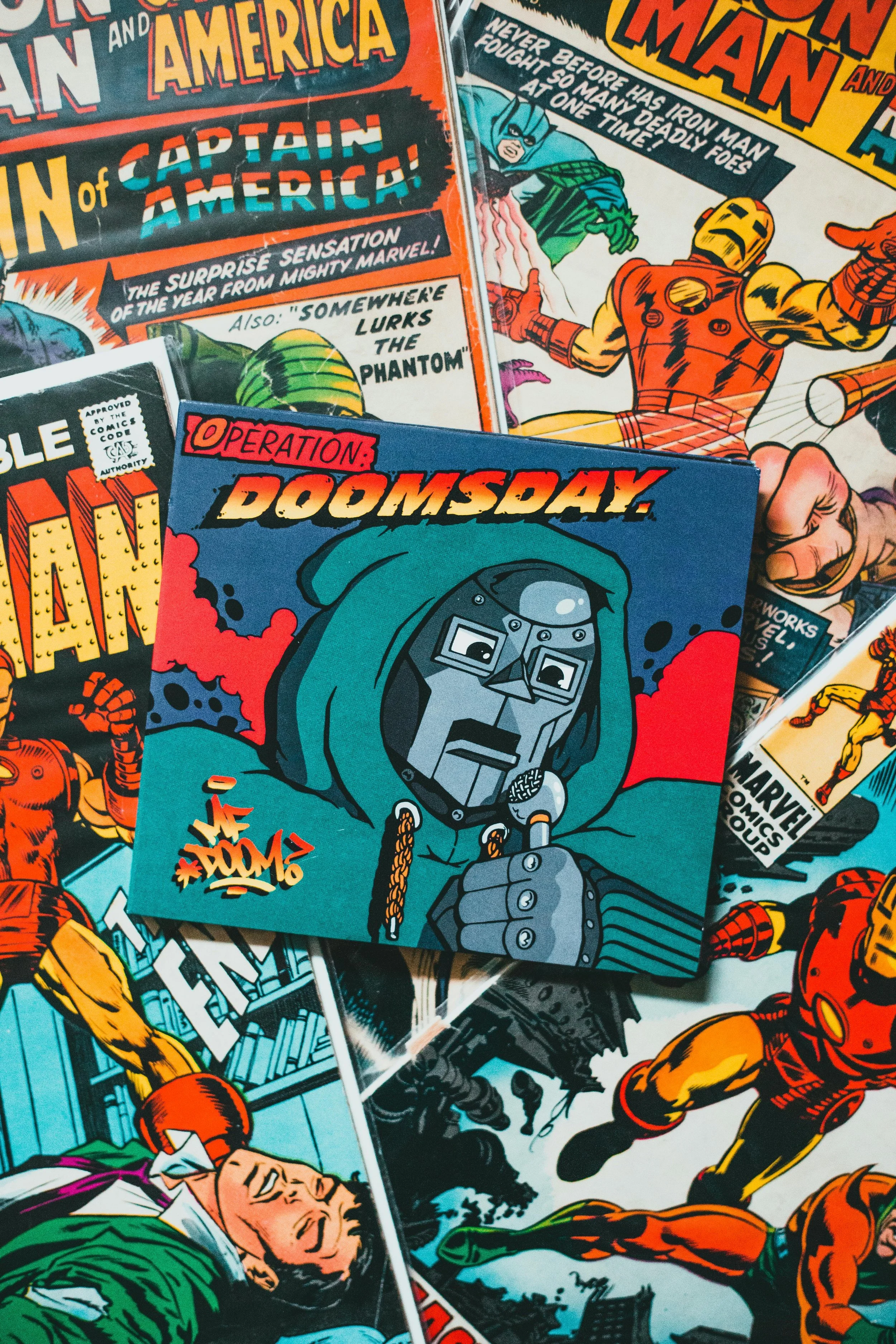The Psychology of Why We Love Villains
Courtesy of Erik Mclean
There’s something undeniably magnetic about villains. Even when they’re destructive, dangerous, or downright terrifying, we can’t look away. They often capture our imagination in ways that heroes can’t, sometimes even stealing the spotlight entirely. But our fascination with villains goes beyond entertaining storytelling — it taps into something deeply psychological.
1. Villains Captivate Us
Villains aren’t just obstacles for heroes; they become the heartbeat of the story. Their presence forces us to confront moral ambiguity and the darker side of human nature. Unlike heroes, who often follow rules and codes, villains break boundaries, challenge systems, and command attention in ways that feel dangerously irresistible.
The thrill of watching a villain unfold lies in their unpredictability. We never know exactly how they’ll act, yet we’re compelled to keep watching, analyzing, and even admiring them from a safe distance.
2. Thanos: The Philosophical Villain
Thanos from the Marvel universe is a prime example of a villain who transcends simple evil. On paper, he’s a genocidal warlord who wiped out half of existence, yet audiences were fascinated by his calm, calculating logic. His philosophical approach to balancing the universe made viewers pause and think — was he just a monster, or a twisted visionary?
His appeal lies in the unsettling way he rationalizes his actions. Thanos forces us to wrestle with ideas of morality, logic, and the consequences of extreme solutions — a level of depth most heroes rarely inspire.
3. The Joker: Chaos Personified
The Joker represents chaos in its purest, most terrifying form. Unlike villains who operate with a plan or goal, the Joker thrives on unpredictability. He dismantles societal norms and exposes the fragility of morality, making him a mirror for the darkest parts of human nature.
What makes him truly captivating is how human he feels. He forces audiences to question the fine line between sanity and madness, and between order and chaos. His allure isn’t just fear — it’s the magnetic draw of unpredictability.
4. Villains as Mirrors of Ourselves
Characters like Darth Vader, Magneto, Killmonger, and Hannibal Lecter embody traits society tells us to suppress: power, rebellion, vengeance, and intelligence. Watching them allows us to explore impulses we wouldn’t act on in real life, offering a safe space to confront our own darkness.
Villains reflect the parts of ourselves we hide. They are an invitation to examine desires, fears, and instincts that society discourages, letting us empathize without consequence.
5. Emotional Release Through Villainy
Villains offer a form of emotional catharsis that heroes rarely can. They challenge authority, speak uncomfortable truths, and take actions we secretly fantasize about.
Through them, we experience a vicarious rebellion — a thrilling sense of freedom. Observing their choices lets us confront frustrations, fantasies, and impulses in a safe, entertaining way.
6. Style and Charisma: Making Villains Unforgettable
A villain’s design, dialogue, and personality are often as memorable as their actions. From Darth Vader’s imposing presence to Loki’s mischievous charm, they are crafted to linger in our minds long after the story ends.
A well-written villain isn’t just an obstacle — they are an experience. Iconic lines, distinctive style, and morally complex motives create characters who spark debate, captivate audiences, and often outshine the heroes meant to defeat them.
7. Why We Truly Love Villains
Ultimately, we love villains because they are mirrors of ourselves — our fears, doubts, desires, and shadows. They remind us that human nature is messy and morality is rarely black and white. Villains entertain, challenge, and provoke thought in ways heroes often cannot.
By understanding villains, we gain insight into the complexities of human psychology. They teach us about ourselves in ways no hero could, making them unforgettable.
8. Villains Are Lessons in Humanity
Villains endure because they feel real in ways heroes sometimes don’t. They embody chaos, power, and freedom — all of the things we fear and secretly admire. By confronting them on screen, we confront the complexities of our own nature, making villains not just entertaining, but essential to storytelling itself. By examining their motives, chaos, and charisma, we gain a deeper understanding of human nature — and maybe even a glimpse of our own hidden impulses. Which villain fascinates you the most, and why? Share your thoughts in the comments — we’d love to hear which darkness you find irresistible!
DISCLAIMER FOR ART IMITATING LIFE
While we strive to provide accurate and helpful content on this site, Art Imitating Life makes no warranties or guarantees regarding the accuracy, completeness, or reliability of any information, advice, or opinions shared here. Use of the content on this website is at your own risk, and to the fullest extent permitted by law, Art Imitating Life is not liable for any losses, damages, or other consequences resulting from its use.
By accessing and using this website, you acknowledge and accept this disclaimer and agree to its terms.
Our website may contain links to external websites for your convenience. These external sites are not controlled, sponsored, or endorsed by Art Imitating Life. We do not assume any responsibility for the content, availability, or practices of these third-party sites and disclaim liability for any loss or damage arising from your use of them.
